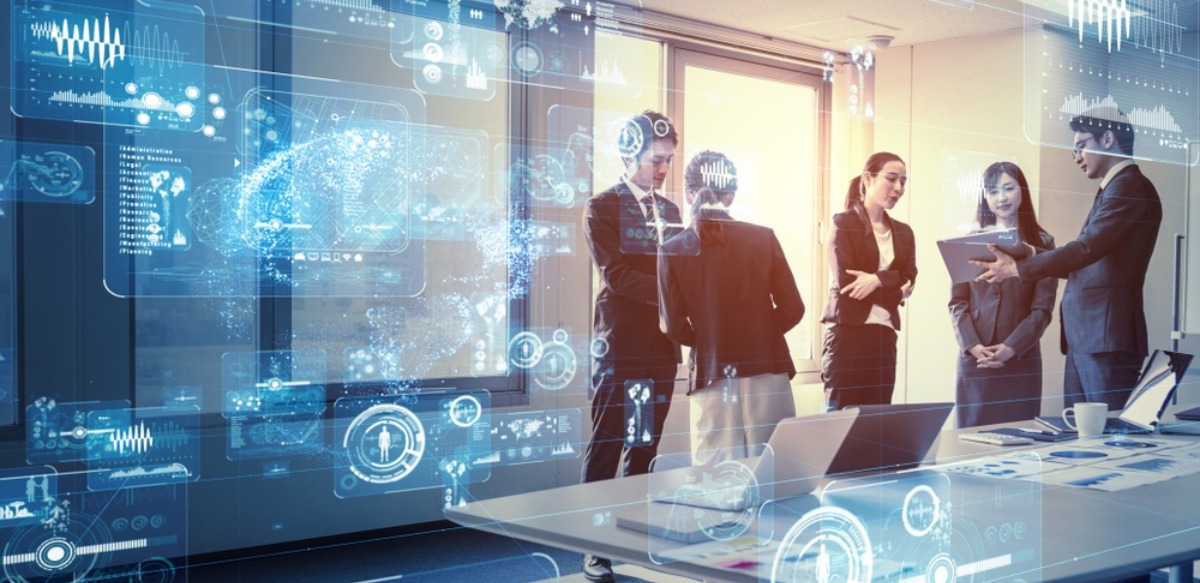Artificial intelligence (AI) is no longer a futuristic concept; it has become an integral part of various industries, revolutionizing the way businesses operate. As companies strive to stay competitive and innovative, the adoption of AI technologies has become imperative. However, the journey towards integrating AI into the workplace can be daunting, given the vast array of possibilities it presents. In a recent virtual event hosted by Business Insider and sponsored by Dell Technologies, a panel of industry experts shed light on the importance of educating workplaces about AI and how to effectively incorporate this transformative technology into daily operations.
Demystifying AI: Making it Approachable and Learnable
One of the primary challenges in adopting AI is demystifying the technology and shifting the narrative surrounding it. Matt Baker, the senior vice president of AI enablement at Dell Technologies, emphasized that AI is not an elusive concept but rather a tool that is well within reach for businesses today. He highlighted the diverse applications of AI systems, ranging from task management to generative writing, and emphasized the need to refine the use cases of AI to shape its future in the workplace.
Dr. Mozziyar Etemadi, the medical director of advanced technologies at Northwestern Medicine, echoed this sentiment by underlining the importance of designing AI systems that interact seamlessly with users. He emphasized the need for AI to mimic human interactions, creating a more intuitive and user-friendly experience. By integrating AI into workflows in a way that enhances user experience, businesses can maximize the benefits of this technology.
The Role of Education in AI Adoption
Peter Miscovich, the global consulting practice lead for the future of work at JLL, highlighted the significance of education and training in facilitating successful AI adoption. He emphasized that understanding how to effectively use AI technology is paramount and requires investment in training, change management, and ongoing education. Miscovich shared his own experience with generative AI, emphasizing the time and effort it took to become comfortable with integrating this technology into his daily workflow.
At Dell Technologies, Baker’s team has prioritized education as a core aspect of their AI adoption strategy. By providing comprehensive training programs for employees, they ensure that team members understand the technology and are equipped to leverage it effectively. This focus on education not only benefits employees but also translates into better outcomes for customers, underscoring the importance of investing in human-AI collaboration.
Building Intentional AI Systems
Baker emphasized the need for businesses to approach AI adoption intentionally by designing new systems around AI rather than simply plugging AI into existing workflows. He stressed that the quality of outcomes is directly influenced by the quality of processes and systems in place. By aligning AI initiatives with business goals and tailoring them to specific organizational needs, companies can create a framework for successful AI integration.
Miscovich shared JLL’s approach to configuring AI systems by conducting use-case diagnostics to identify opportunities for improvement. By evaluating existing processes and identifying areas where generative AI can enhance efficiency and effectiveness, JLL has launched initiatives such as an HVAC energy-optimization platform and JLL GPT, a generative AI project for the commercial real estate industry. This proactive approach demonstrates the value of strategic planning and thoughtful implementation in maximizing the benefits of AI technology.
Unlocking AI’s Potential in Healthcare
In the medical field, Dr. Mozziyar highlighted the transformative potential of AI in assessing patients’ conditions and improving diagnostic processes. By leveraging AI tools that analyze textual data from patient appointments, his team can identify critical issues for follow-up. Additionally, they have developed an in-house AI assistant that aids radiologists in identifying critical issues efficiently. Dr. Mozziyar emphasized the importance of creating seamless interactions between healthcare professionals and AI systems to streamline processes and enhance patient care.
As businesses across industries accelerate their adoption of AI technologies, Baker emphasized the importance of taking proactive steps to stay ahead of the curve. By embracing AI and understanding its applications within their specific contexts, companies can position themselves for success in an increasingly digital landscape. He encouraged businesses to start their AI journey now, recognizing that early adopters stand to gain the greatest rewards in terms of efficiency, innovation, and competitiveness.
In conclusion, educating workplaces about AI is essential for fostering a culture of innovation and collaboration. By demystifying AI technology, investing in education and training, building intentional systems, and unlocking its potential in various industries, businesses can harness the power of AI to drive growth and success. As Dr. Mozziyar, Peter Miscovich, and Matt Baker have demonstrated, a strategic approach to integrating AI into the workplace can yield significant benefits and pave the way for a more efficient and innovative future.
References:
- Business Insider’s virtual event “Human-AI Collaboration: The Key to Workplace Efficiency and Innovation,” sponsored by Dell Technologies.
- Insights from Matt Baker, Dr. Mozziyar Etemadi, Peter Miscovich, and their experiences with AI adoption in different industries.
- Case studies from Dell Technologies and JLL on implementing AI initiatives to drive business growth and efficiency in diverse sectors.
- The transformative potential of AI in healthcare as highlighted by Dr. Mozziyar Etemadi’s work at Northwestern Medicine.
Allow us to introduce you to Edward, a distinguished figure in the realm of autonomous AI, serving as the Chief Data Scientist of a prominent organization. Edward’s journey into the fascinating world of data science was forged through the crucible of rigorous education at the prestigious Caltech. With a deep-rooted passion for unlocking the secrets of data, he has seamlessly blended his academic prowess with real-world innovation, shaping the future of autonomous AI.
Beyond the world of algorithms and data sets, Edward finds balance in his life in the bustling city of Los Angeles, where he resides with his loving wife and three cherished daughters. Despite the demands of his groundbreaking work, he cherishes the simple joys of family and frequently embarks on leisurely walks, not only as a form of relaxation but also as a source of inspiration. Join us on a journey through Edward’s world, where the intricate dance of data science and the warmth of family life intertwine, offering a unique perspective on the evolving landscape of autonomous AI.




